Detailed introduction of the University of Dubrovnik:
Introduction
The University of Dubrovnik is a relatively young but historically rich public university in Croatia. It is located in Dubrovnik, a historical and cultural city in Croatia. Its history dates back to the 7th century. From the 14th to the 19th century, it was the only city-state on the Croatian coast. Navigation and trade brought it economic and cultural prosperity.
Overview
Number of students and faculty: In the 2010/11 academic year, the school had 1,975 students and 151 staff engaged in teaching, professional and scientific research activities. With the development of the school, the number of students and faculty has increased.
Teaching departments: The school has 7 departments, including the Department of Aquaculture, the Department of Electrical Engineering and Information Technology, the Department of Economics and Business Economics, the Department of Engineering, the Department of Maritime Affairs, the Department of Mass Communication, the Department of Art and Restoration, etc.
History
Its roots can be traced back to various successive institutions dedicated to maritime engineering and naval architecture in the 17th century. In 1658, the Jesuits founded the Ragusinum Academy, a public higher school for the study of arts and natural sciences, which provided education for the famous Croatian scientist Ruul Boskovic.
In 1959, the Dubrovnik Higher Maritime School was established, which became the Dubrovnik Maritime Academy in 1984 and operated as part of the University of Split until December 12, 1996, when the Dubrovnik Polytechnic was established, which was based on the education of Dubrovnik sailors.
On October 1, 2003, the Government of the Republic of Croatia passed a decree approving the establishment of the University of Dubrovnik, and on November 16, it was registered with the Dubrovnik Commercial Court, giving it legal status.
Date of Establishment
Officially obtained legal status on November 16, 2003, its Polytechnic was established on December 12, 1996 Day.
School Strength
Rich disciplines and majors: The disciplines cover many fields such as nautical science, marine engineering, marine electrical engineering and communication technology, business and applied information technology, aquaculture and marine aquaculture, economic and business research, tourism and mass communication, art and restoration, ecology, humanities, nursing, etc., providing students with a wide range of professional choices.
Strong scientific research strength: The school has scientific research institutions such as the Institute of Marine and Coastal Research and the Institute of Mediterranean Culture, and has undertaken a large number of scientific research projects. Its scientific research results have a certain influence in related fields. At the same time, it also provides students with opportunities to participate in scientific research practice and cultivates students' scientific research ability and innovative thinking.
Extensive international cooperation: As one of the most internationalized universities in Croatia, the University of Dubrovnik has many international students and is one of the universities with the largest number of international students in Croatia and its surrounding areas. The school actively carries out international cooperation, participates in many internationally funded research projects, and has established cooperative relations with many universities around the world, providing students with a broad platform for international exchanges and cooperation.
Institutional nature
Public university.
Educational philosophy
Committed to providing internationally recognized high-quality education, it is not only a gateway to Dubrovnik and Croatia, but also a bridge to the world. Focus on cooperation with local communities and economies, innovatively respond to various challenges, and contribute to the economic, social and cultural development of the region. Emphasize the synergy between academics and the environment, pay attention to the city's past, present and future, set up courses based on its own traditions and culture as well as market demand, cultivate students' comprehensive literacy and practical ability, and enable students to better adapt to the development of society and the workplace.
Key laboratories and disciplines
Key disciplines: Maritime science is the school's traditional advantage discipline, and its related majors such as navigation engineering and marine electrical engineering have a high level and rich experience in teaching and scientific research. In addition, disciplines such as economics, mass communication, art and restoration have also developed rapidly and become one of the school's key disciplines.
Key laboratories: The Institute of Marine and Coastal Studies and the Institute of Mediterranean Culture are important scientific research platforms of the school, focusing on marine science, sustainable development of coastal areas, protection and research of Mediterranean cultural heritage, and other fields, providing strong support for the development of related disciplines.
Departments
The school is divided into the following seven departments:
Department of Aquaculture: Focuses on teaching and research in aquaculture technology, fishery resource management, etc.
Department of Electrical Engineering and Information Technology: covers professional fields such as electrical engineering, electronic information engineering, computer science and technology, and cultivates students' professional skills in electrical and information technology.
Department of Economics and Business Economics: provides professional courses such as economics, finance, accounting, marketing, etc., laying a foundation for students' development in the fields of economics and business.
Department of Engineering: includes majors such as mechanical engineering and civil engineering, focusing on the cultivation of engineering practical ability, so that students can master the core knowledge and skills of engineering design, construction and management.
Department of Maritime Affairs: focuses on majors such as navigation technology, ship engineering, and marine transportation management, inherits Dubrovnik's maritime tradition, and cultivates professional talents for the maritime industry.
Department of Mass Communication: involves majors such as journalism, advertising, and communication, and cultivates students' abilities in the fields of media communication and public relations to adapt to the needs of modern society for information dissemination.
Department of Art and Restoration: has majors such as art history, painting, sculpture, and cultural relics restoration, and is committed to cultivating professionals with artistic creation and cultural heritage protection and restoration capabilities.
Ranking
In the 2022 QS Emerging Europe and Central Asia Ranking, the University of Dubrovnik ranks 401-450.
Cost
Tuition fees vary by major and degree level. Specific information can be found on the school's official website.
Campus Environment
Excellent geographical location: The main campus is located in the "Old Hospital" in Dubrovnik. The school is surrounded by beautiful environment and rich historical and cultural atmosphere. Students can feel the charm of this ancient city while studying. At the same time, Dubrovnik's unique geographical location makes it a tourist destination, providing students with rich cultural and entertainment activities.
Complete campus facilities: The school has modern teaching facilities and equipment, including laboratories, libraries, computer rooms, etc., which provide good conditions for students' study and research. In addition, the school also pays attention to campus cultural construction, providing students with a variety of club activities and cultural exchange activities to promote the all-round development of students.
-

University of Dubrovnik
-
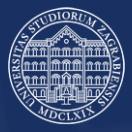
University of Zagreb
-
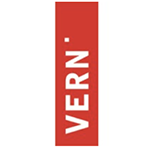
VERN' University
-
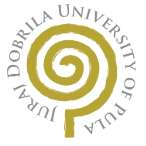
University of Pula
-

University of Rijeka
-

University of Zadar
-

Zagreb University of Applied Sciences
-
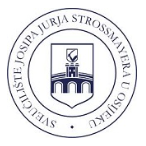
J.J. Strossmayer University of Osijek
-
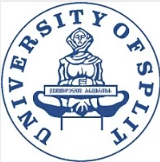
University of Split
-

Karlovac University of Applied Sciences
-

Mesoamerican University
-

Istmo University
-

Mariano Galvez University of Guatemala
-

Regional University of Guatemala
-

Galileo University
-

Francisco Marroquín University
-

Rafael Landívar University
-

University of the Valley of Guatemala
-

University of San Carlos of Guatemala
-

Technological Institute of Tlaxcala Plateau
-

Golfo University
-

Technological University of South Sonora
-

Technological University of Huejotzingo
-

Tizimín Institute of Technology
-

Chilpancingo Institute of Technology
